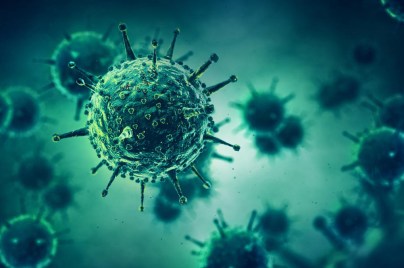From Kenya to the U.S., she’s helping lead the fight against HIV
Growing up in Kenya during the height of the HIV/AIDS crisis inspired Merck’s Dr. Bern Ng’eno to commit her life to improving HIV treatment and care
November 13, 2020

As a young girl in Kenya, Bern Ng’eno witnessed firsthand the devastation of HIV/AIDS. At that time, it was a horrific, new disease that plagued urban and rural communities. It caused extreme illness and, for many, death. It claimed the life of her close family member.
These early experiences inspired Ng’eno to pursue a career in medicine and, ultimately, led her to Merck. As global director of medical affairs, virology, she supports scientific innovations that push the boundaries of HIV treatment and prevention. And, it is her experience on the frontlines as a medical professional and researcher in sub-Saharan Africa and other resource-limited settings that guides her passion to make a difference.
Unimaginable suffering, death and stigma
Into the 1990s, as Ng’eno was training to become a doctor, the toll of the virus continued to affect the country and its people. Working at Kenyatta National Hospital (KNH), she saw unimaginable suffering and death due to HIV and AIDS.

“Treatment options were limited. And HIV/AIDS was highly stigmatized, even within the health care setting…it was deplorable. I knew that once I graduated, I would dedicate my work to helping those affected by HIV.”
With a career in infectious disease that has spanned nearly 15 years, Ng’eno has seen the impact of HIV on people and communities as well as the progress that’s been made.
While at KNH, she provided clinical care to the country’s largest cohort of HIV-infected children, adolescents and their families.
“I saw how the epidemic was disproportionately impacting women and children around the country, and the dramatic impact this had on family and community structures,” says Ng’eno.
Ng’eno had a chance to continue addressing these issues when she was invited to join the U.S. Centers for Disease Control and Prevention (CDC) Kenya office, working under the President’s Emergency Plan for AIDS Relief (PEPFAR) and providing technical support to the Kenya Ministry of Health. Ng’eno played a central role in establishing the Pediatric and Adolescent HIV program at the CDC and decentralizing HIV treatment and care services in Kenya, including developing and implementing HIV guidelines and policies.
“We helped form mentor programs, conduct national evaluations to identify gaps in care, improve infrastructure to deliver health care, and develop much needed treatment guidelines,” said Ng’eno. “Our success with these efforts convinced me that there’s even greater potential to impact the health of families and communities.”


Expanding focus in a broader view
In order to determine how to better control or prevent infectious diseases, Ng’eno shifted her focus to epidemiology to better understand how diseases affect populations. She joined the CDC’s Epidemic Intelligence Service (EIS), a two-year applied epidemiology training program where she was a frontline health responder during the West Africa Ebola crisis.
“I was now able to bring back that valuable training to the HIV community,” said Ng’eno, who then joined the CDC Global HIV program as a medical epidemiologist.
In this role, she provided technical assistance to the World Health Organization and other stakeholders to formulate global HIV Guidelines and Policies and supported Ministries of Health in key high burden countries across sub-Saharan Africa to deliver HIV prevention and potentially lifesaving antiretroviral therapies.
Today’s work in preventing and treating HIV
Ng’eno continues her work at Merck, armed with the knowledge, experience and compassion earned from years on the frontlines of the battle against HIV. She immerses herself in the research and development needed to address the unmet medical needs that still exist across the globe for diverse patient populations, including adolescents, women, and men who have sex with men.
“I believe that with our committed team and global partners, we can make a difference in ending the global HIV epidemic.”


